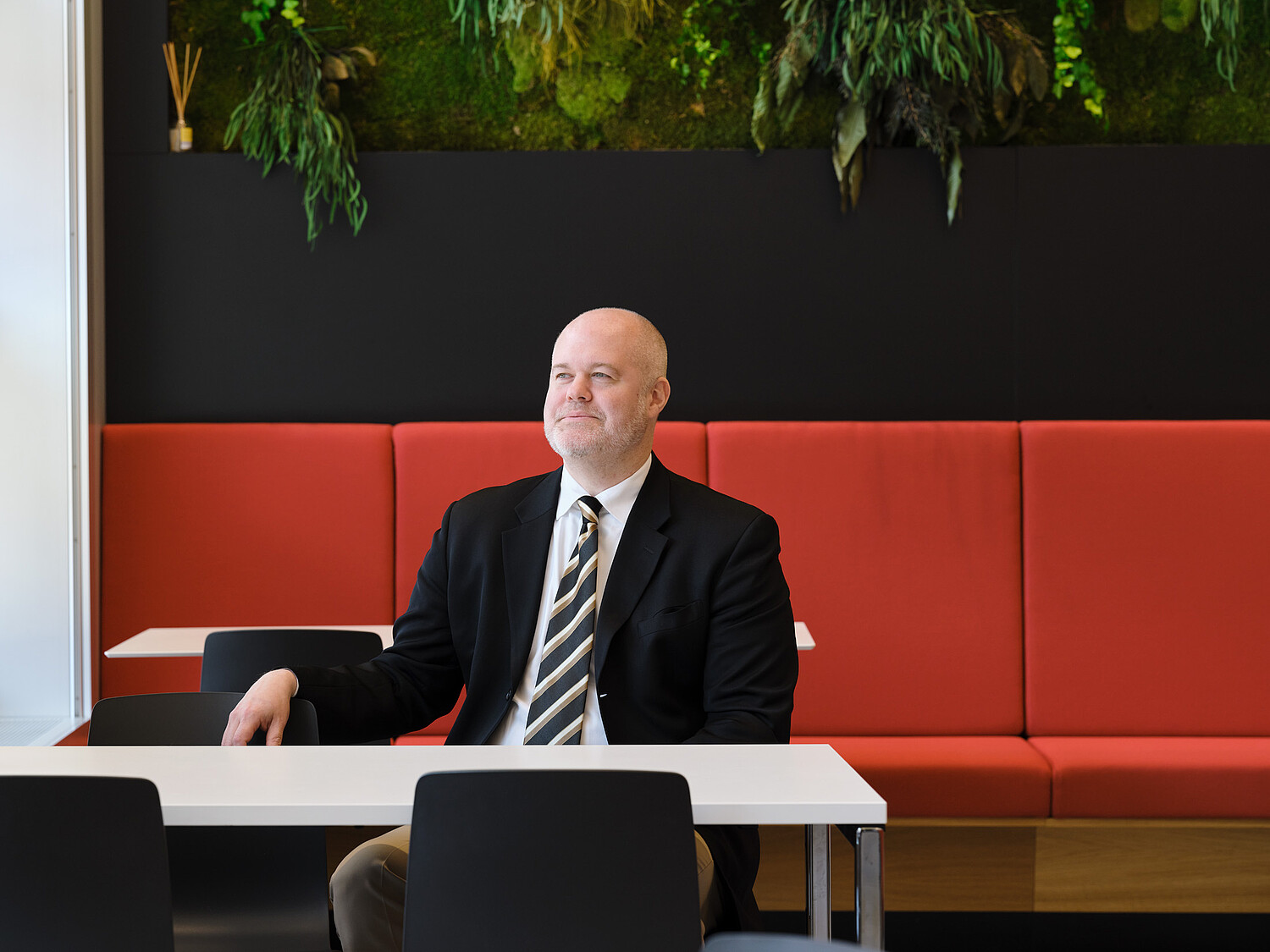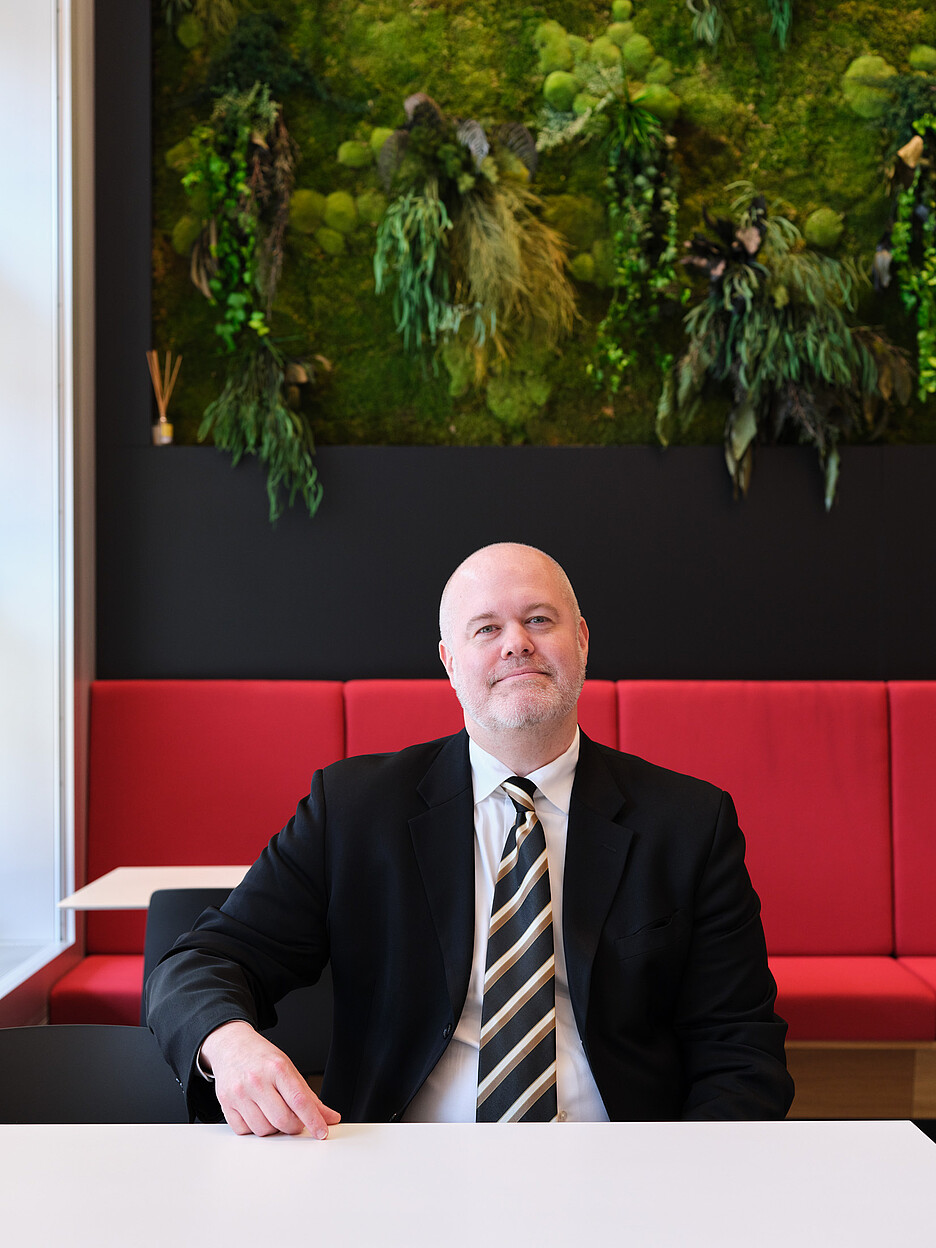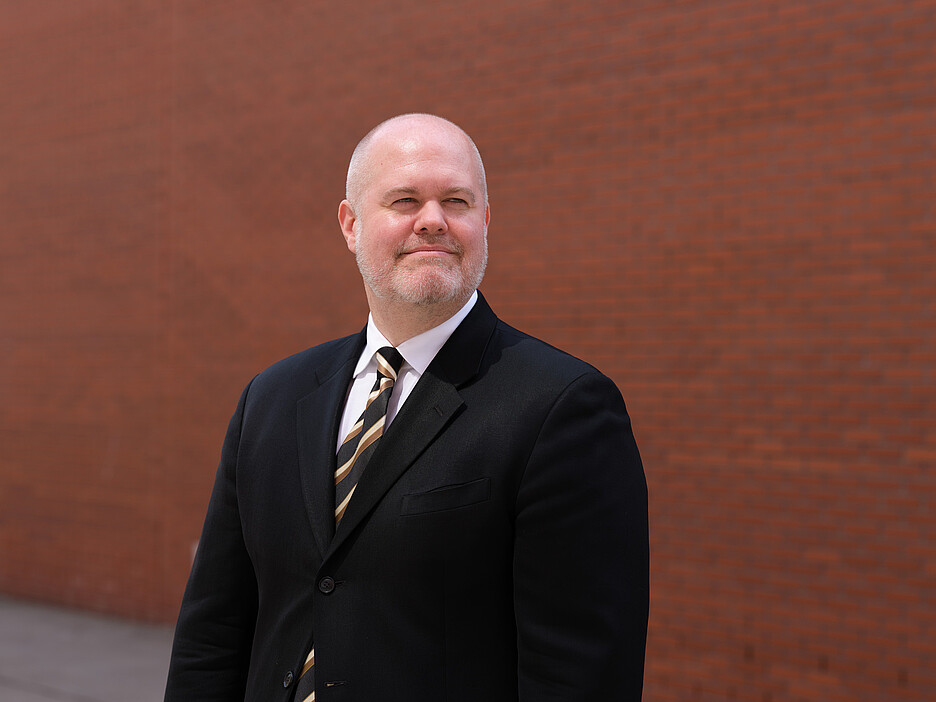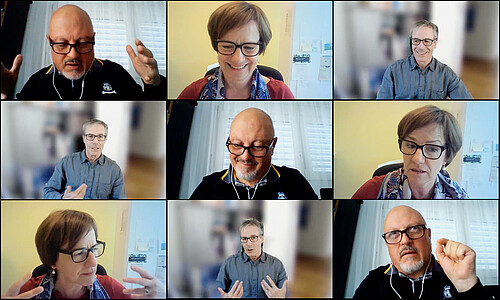
After the war comes the reform
Even if Ukraine manages to emerge as an independent state from this war, the country will still be faced with major challenges. Not only will it have to make a start on rebuilding, it will also need to implement comprehensive reforms. ZHAW Eastern Europe expert Christopher Hartwell knows the changes that are most urgently required. The American economist is currently working with experts from Ukraine and Poland on drawing up a proposal for these reforms.
Many people, including Christopher Hartwell, Eastern Europe expert at ZHAW, have been surprised by the stiff resistance that the Ukrainians have put up against the Russian invasion. “The fact that Ukraine was not defeated within 72 hours is what has made all the other surprising developments in this war possible in the first place.” This is because the longer Ukraine holds out against the Russian invasion, the greater the pressure will be on the West to intervene. “If the country had surrendered after just a few days and Russia had installed a puppet government, Europe and the United States would doubtless have largely refrained from becoming involved this time too.”
Decentralisation as the most important goal of reform
Even when the war ends, however, the population of an independent Ukraine will initially find itself facing hard times. The country needs a kind of Marshall Plan, a package of measures to drive its reconstruction forward and consolidate and strengthen the country for the future, says Hartwell. In the book he published a few years ago entitled “Two Roads Diverge: The Transition Experience of Poland and Ukraine”, the Head of the International Management Institute at the ZHAW School of Management and Law set out the different paths taken by the economies of the two countries since the end of communism. While Poland can look back on more than a quarter of a century of economic growth, Ukraine, which is similar in a large number of respects, has repeatedly experienced political turmoil. The key difference, Hartwell argues, lies in Ukraine’s reckless neglect of areas such as property rights and trade, both of which are essential for a free market economy.

Together with experts from Ukraine and Poland, Hartwell is currently drawing up a proposal for reforms in Ukraine. These reforms are essentially based on three pillars, the most important of which is decentralisation. “The less power that is concentrated in Kyiv”, the ZHAW researcher stresses, “the easier it will be to also solve problems such as corruption and overregulation”. The Maidan revolution of 2014 already showed that the Ukrainians have the ability to organise themselves spontaneously and organically and this has now been borne out still further by the war. “The fact that Ukraine has been able to hold out against the invasion for so long is due primarily to its mobile, decentralised and flexible units, which can be formed and disbanded particularly rapidly.” The Russian troops, by contrast, are organised on a strictly hierarchical basis, and the loss of an increasing number of generals in the war is clearly causing them problems.
Improving property rights
Secondly, the country needs better property rights as a matter of urgency and a more liberal land market, Hartwell adds. For a period of two decades, the population was not permitted to sell agricultural or other zoned land. Last year, president Volodymyr Zelensky lifted the moratorium and, since then, it has been possible to sell land to locals at least. Politicians had long benefited from people being tied to their property in this way and had always found ways of getting round it. “In future, it should not be possible for the state to interfere to such an extent.”
A comprehensive reform of the judicial system
Thirdly, a comprehensive reform of the judicial system is called for in Ukraine. Zelensky had not done enough to ensure its independence prior to the war. But property rights in particular can only be enforced if a fundamental change comes about in this respect, criticises Hartwell. The small country of Estonia could be taken as an example here. At one stage, every single judge in the country was dismissed and asked to reapply for their post. The majority of judges were taken on again, Hartwell explains. “The most corrupt and incompetent members of the judiciary, who had close links to communism and were not open to change, were then eliminated. If this can be done in a country where everyone knows everyone else, then it should certainly be possible in a large country like Ukraine.
“People burst out laughing in the corridors of our think tank when they realised just how mild the sanctions would be.”
The end of the war is still not in sight, however. Hartwell thus welcomes the fact that the West has now considerably stepped up its sanctions against Russia – freezing the Central Bank of Russia’s currency reserves marks an unprecedented move. “The fact that Russia will soon be unable to pay its debts ought to be a major blow for Putin.” He has always regarded himself as a guardian of stability, anxious to set himself apart from the chaotic 1990s that prevailed in the country.
The most effective sanction still remains to be imposed
Despite this, the economist is still sceptical as far as the impact of economic sanctions is concerned. Hartwell remembers all too well the reactions of the Russian population to the West’s threats in 2014 following the annexation of Crimea. Hartwell, who has spent many years in Eastern Europe, including in Ukraine, was living in Moscow at the time as head of department of an academic think tank. The initial concern regarding the consequences for the country very soon gave way to a relieved joviality, he says. “People burst out laughing in the corridors of our think tank when they realised just how mild the sanctions would be.” This also gave Putin’s popularity a boost.
It will doubtless also be a while until the most effective sanction is brought into play – a complete withdrawal from Russian gas. Hartwell believes that the price of such a step would be too high especially for Germany, but also for Austria, Italy or Hungary. “Any politician that had to announce that a few hard years were ahead would doubtless stand little chance of being re-elected.”

“A ceasefire would at most give the Russian troops a breather.”
At the same time, the West has stepped up its supply of weapons to Ukraine. Hartwell considers it clear that “Ukraine has to send the Russians packing and win this war for itself.” Although completely unrealistic a few months ago, a scenario of this kind would at least appear conceivable today. Anything else would result in an unstable equilibrium again and it would only be a matter of time until Russia regained its strength and launched another attack. “It would then perhaps not just target Ukraine but areas like Transnistria in Moldova as well”, Hartwell points out. Ever since the 1990s, there have been plans to secure sea access to the entire region and make Ukraine into a fully landlocked state.
Little hope for a ceasefire
Hartwell does not hold out much hope for a ceasefire such as Germany and France are currently striving for. Russia has been breaking the ceasefire agreed on as part of the 2014 Minsk Agreement on a daily basis for many years, says the academic. And there is no reason to think that things would be any different now. “A ceasefire would at most give the Russian troops a breather.” Only the supply of more weapons could bring about a decisive turnaround in Ukraine’s favour – this is something that Hartwell is convinced of.
Switzerland: decisive words but not always decisive deeds
“Even if Switzerland does not intervene in the war, its role should not be underestimated”, says ZHAW Eastern Europe expert Christopher Hartwell. The acceptance of Ukrainian refugees and also the official statements issued by Switzerland clearly condemning Russia’s actions constitute key signals, he says. “The fact that the country is moving slightly away from its former understanding of neutrality, which it has maintained for hundreds of years and adhered to especially during the Second World War, is more than remarkable.” At the same time, Switzerland is abiding by its role as a neutral state and is still endeavouring to bring people together for peace talks.
Wealthy Russians’ yachts
Despite this, Switzerland would like to have its cake and eat it, the head of the ZHAW International Management Institute adds. This is because the country does not wish to gamble everything away as far as Russia is concerned. The endeavours to confiscate the yachts of wealthy Russians and freeze their assets, for example, have remained rather modest to date. “It’s not that the relevant authorities lack the knowledge”, Hartwell is convinced, “but not all cantons are equally willing to act.” Canton Zug, for example, with its many company head offices under Russian management, will doubtless be less willing to take action against its good taxpayers than other cantons.
The Russian elite’s money
The probability of the Russian elite withdrawing all its money from Switzerland is not all that great, given that it has an increasingly small number of other options elsewhere, says the researcher. And even if that were to happen, it would not cause the Swiss banking system to collapse.
Hartwell does, however, consider it desirable for the country to rid itself of these assets soon, although this would have to be done in the context of international sanctions, for example. The American economist is highly critical of the approach adopted by the United States, which has confiscated Russian money with the intention of using it to rebuild Ukraine. “This constitutes an attack on property rights, which are actually rights that are upheld by the West.” Beating Russia by resorting to Russian methods cannot be the right way to proceed.
Sparingly allocated visas and residence permits
Switzerland could adopt a clear position not least by issuing visas and residence permits extremely sparingly to the influential Russian elite in future. “That would send out a clear signal that Switzerland does not offer a bolthole.”


0 Comments
Be the First to Comment!